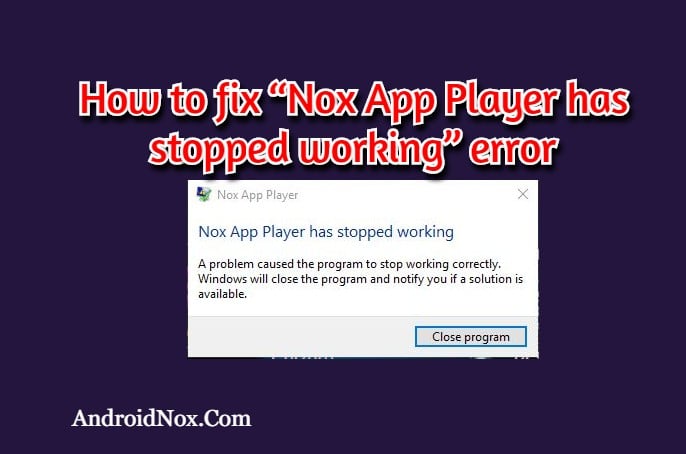Performance reviews play a pivotal role in employee management and development, serving as a platform for managers to assess their team’s performance, provide feedback, and set expectations for the future. While most performance reviews proceed smoothly, there are instances when managers find themselves grappling with challenging conversations. These discussions, although uncomfortable, are indispensable for addressing performance issues, fostering growth, and preserving a productive work environment.
In this guide, we will explore the complexities of handling difficult conversations during performance reviews and offer valuable insights for managers to effectively navigate such situations.
The Significance of Performance Reviews
Performance reviews are vital in organizations, serving as a cornerstone of talent management. They provide structured evaluations, revealing strengths and areas for growth. Importantly, performance reviews align individual and organizational goals, fostering motivation and clarity. These reviews also deliver constructive feedback, aiding self-awareness and professional development. When executed diligently, they contribute to a motivated, skilled, and engaged workforce, benefiting the organization’s overall success.
Challenges in Performance Reviews
Performance reviews present challenges for both managers and employees. Several factors contribute to the complexity of these conversations:
1. Emotional Reactions
Negative feedback during performance reviews often triggers emotional responses in employees, including defensiveness, anger, and demotivation. Defensiveness can hinder open communication, while anger may strain working relationships and demotivation can lead to reduced productivity and disengagement.
2. Communication Barriers
Language barriers, misunderstandings, and differing communication styles can hinder productive performance reviews. Language diversity may lead to inaccuracies in feedback, while misunderstandings can occur even in shared languages due to nuances in tone and context. Communication styles also vary, affecting the perception of feedback’s tone and candor.
3. Bias and Stereotypes
Performance biases and stereotypes, often unnoticed by managers, can unfairly influence performance reviews. Confirmation bias, halo and horn effects, and stereotypes may lead to inaccurate assessments. These biases can impact an employee’s career, limiting opportunities and reinforcing harmful stereotypes.
4. Lack of Preparation
Unprepared managers often struggle during performance reviews as they may lack specific examples and actionable feedback. Without concrete examples, feedback can be vague and subjective, making it challenging for employees to understand the basis for their evaluation. Furthermore, unprepared managers may struggle to provide clear recommendations for improvement, leaving employees uncertain about their next steps for growth.
5. Conflict Avoidance
Managers may avoid addressing performance issues to prevent conflict, but this avoidance can lead to more significant problems and a decline in team morale. Neglected issues can worsen, affecting overall productivity and eroding trust among team members. When problems go unaddressed, employees may perceive a lack of accountability and become demoralized.
6. Legal Concerns
Mishandling performance reviews can lead to legal consequences, particularly if employees perceive unfair treatment or discrimination. Discriminatory evaluations can trigger costly lawsuits and damage an organization’s reputation. Wrongful termination or retaliation claims may also arise if negative reviews are seen as punitive.
Tips for Navigating Difficult Conversations in Performance Reviews
Effectively managing difficult conversations during performance reviews requires a strategic approach. Here are valuable tips to help managers navigate such situations with finesse:
1. Thorough Preparation
Before the performance review, meticulously review the employee’s performance over the evaluation period. Gather specific examples and data to support your assessments, both positive and negative.
2. Establish a Comfortable Environment
Selecting an appropriate setting for a performance review is crucial. Opting for a private and quiet location ensures confidentiality, allowing employees to discuss their performance openly without fear of being overheard. Furthermore, starting the conversation with a warm greeting is equally important. It sets a positive tone, helps to alleviate tension, and establishes an environment where the employee feels valued and respected.
3. Use Constructive Language
Constructive language in performance reviews entails framing feedback positively. Instead of criticizing, it encourages collaborative problem-solving. For instance, instead of saying “You’re always late,” a more constructive approach could be, “I’ve noticed punctuality issues lately; let’s discuss improvement together.” This approach fosters growth and positivity in performance discussions.
4. Focus on Behavior and Impact
When conducting performance reviews, it’s crucial to focus on specific behaviors and their consequences. Rather than making personal judgments or unwarranted assumptions, managers should provide feedback that relates directly to actions and their effects on team dynamics or organizational objectives. This approach ensures fairness and encourages constructive dialogue.
5. Active Listening
Promoting employee participation in performance reviews is essential. Encourage them to share their viewpoints, actively listen to their responses, and ask clarifying questions. Acknowledging their feelings and concerns fosters rapport and demonstrates empathy, enhancing the effectiveness of the review process by ensuring that both perspectives are considered.
6. Maintain Professionalism
Maintaining a composed and professional demeanor during performance reviews is pivotal. Regardless of the employee’s response, a manager’s calm and collected attitude sets the tone for a productive discussion. It ensures that the conversation remains constructive and respectful, contributing to a more effective review process.
7. Avoid Surprises
Surprising employees with performance feedback during annual reviews can be counterproductive. Regular check-ins and ongoing feedback sessions throughout the year help employees stay informed about their progress. This approach fosters open communication, allows for timely adjustments, and ensures that performance discussions are not unexpected or disconcerting.
8. Set Clear Goals
In performance reviews, collaborative goal-setting is essential for employee development. SMART Goals should be specific, measurable, achievable, relevant, and time-bound. This approach ensures that objectives are clearly defined, progress can be tracked, and employees are motivated to work toward tangible improvements aligned with organizational objectives.
9. Offer Support and Resources
Supporting employee development is integral to performance reviews. If necessary, managers should offer additional resources or training to aid improvement. Providing this support demonstrates commitment to the employee’s growth and success, fostering a sense of teamwork and a greater likelihood of achieving performance goals.
10. Document the Conversation
Documenting performance review discussions is vital for record-keeping and transparency. Recording agreements and employee responses helps establish a clear paper trail, which can be invaluable in resolving disputes or taking further actions, such as setting expectations, tracking progress, and making informed decisions regarding promotions or disciplinary measures.
11. Follow Up
Regular follow-up meetings after performance reviews are crucial for monitoring progress and offering continuous feedback. They show a commitment to an employee’s development, maintain open communication, and ensure that objectives are being met. These follow-up sessions foster accountability and contribute to ongoing improvement.
12. Seek Training and Support
Dealing with difficult conversations during performance reviews can be daunting. Managers who find it challenging may benefit from seeking training or guidance from HR professionals or management experts. Learning effective communication techniques, conflict resolution skills, and empathy-building strategies can be invaluable in handling these conversations more adeptly.
13. Address Bias and Stereotypes
Being aware of personal biases and stereotypes is crucial for fair performance reviews. Managers should take steps to mitigate them by implementing objective evaluation criteria, focusing on job-related performance metrics, and seeking input from diverse sources. This approach promotes a more equitable and unbiased assessment process.
14. Legal Compliance
Understanding relevant employment laws and regulations is essential to ensure that performance reviews are legally compliant. Managers should familiarize themselves with these laws and consult with HR or legal experts if necessary to avoid potential legal issues and ensure that the evaluation process adheres to legal standards.
Conclusion
Managing difficult conversations within performance reviews is a critical skill for managers. By preparing thoroughly, creating a comfortable environment, using constructive language, and actively listening, managers can address performance issues while maintaining positive relationships with their team members.
The ultimate goal of these conversations is not just to highlight flaws but to facilitate growth and improvement. When handled effectively, performance reviews contribute to a more engaged and productive workforce, benefiting both employees and the organization as a whole.











